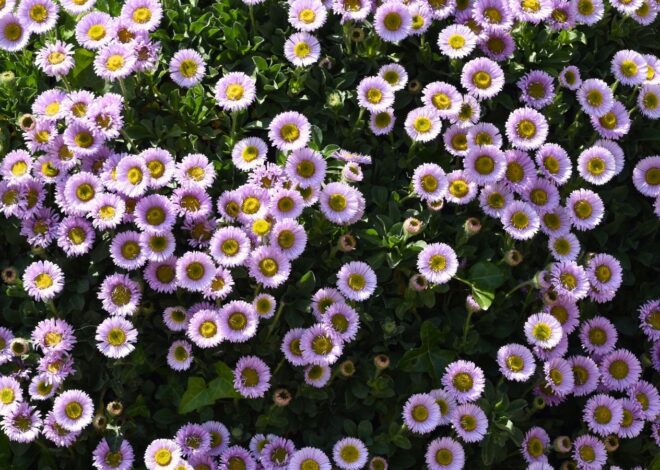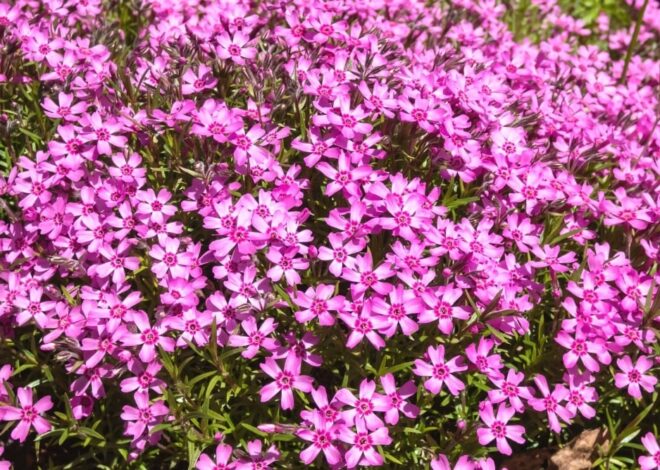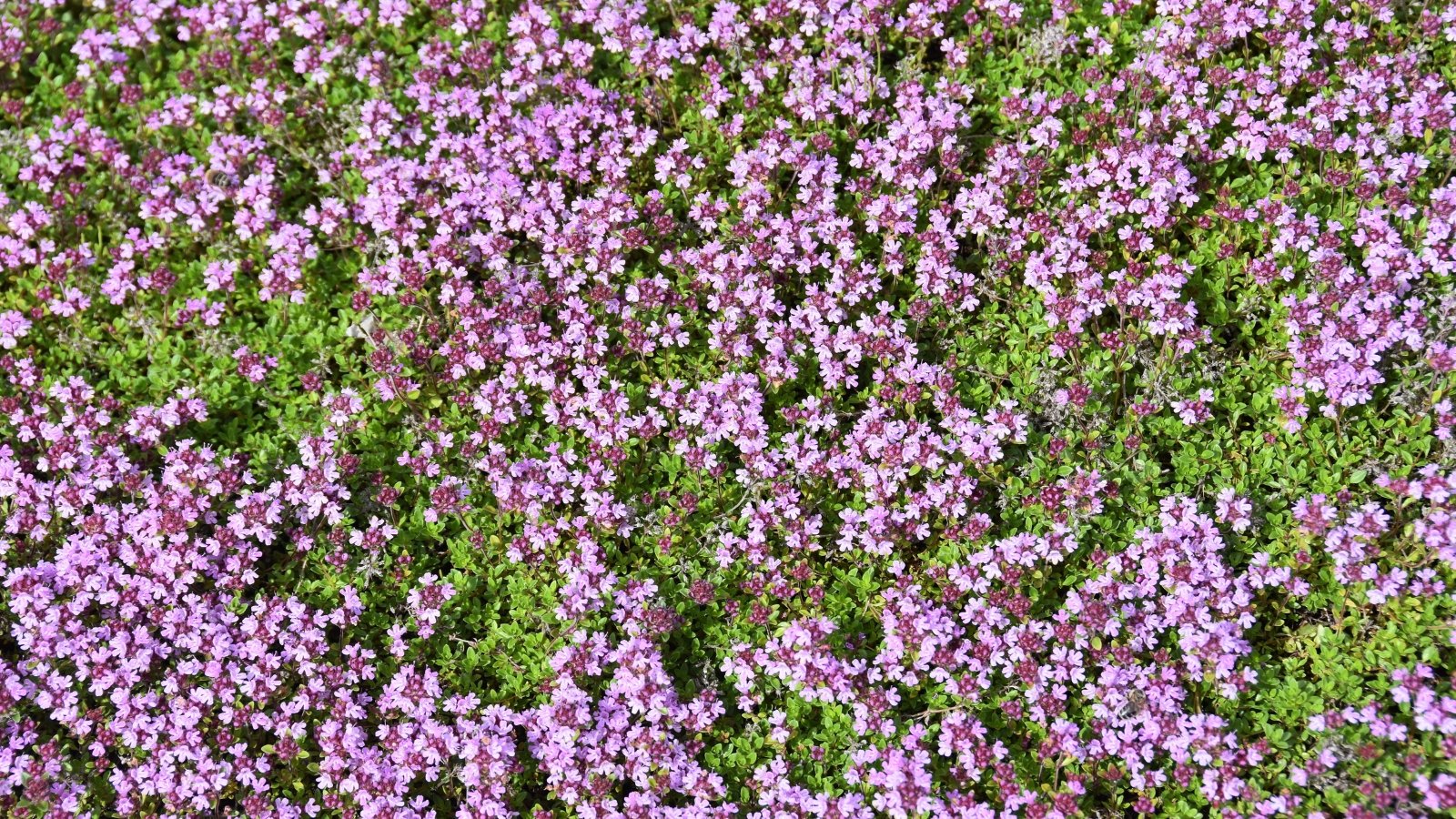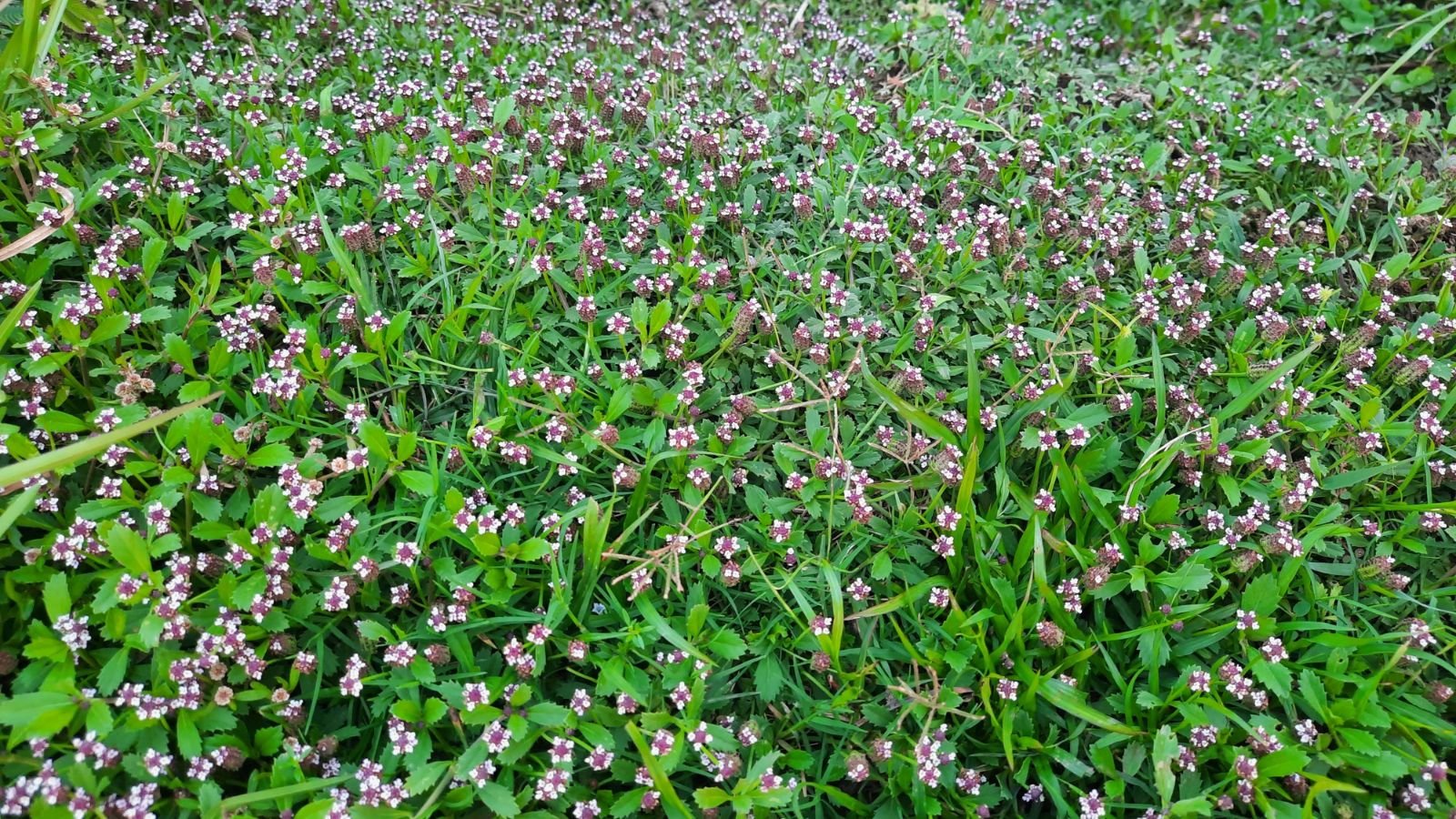
Learn to Plant, Develop, and Handle Kurapia
Kurapia flooring cowl is an fascinating plant. Usually generally known as Phyla nodiflora (beforehand Lippia nodiflora) its a standard evergreen flooring cowl that’s discovered on most continents. It does, nonetheless, carry out terribly efficiently in drought-stricken areas. Even in areas the place it will get ample parts of water, it makes all kinds for a yard quite a few. An important disadvantage of kurapia is that it’s not frost-hardy and should die as soon as extra all by frosts and freezes, nonetheless it’ll come as soon as extra all through the spring whether or not or not it is efficiently established.
Some types of kurapia getting used for flooring covers are patented, so availability is often a problem. Nonetheless, it’s obtainable on-line as a low upkeep turf grass. Kurapia is widespread in California and is beginning to make inroads into utterly completely different areas as a drought-tolerant flooring cowl which can tolerate gentle foot friends, too. It’s usually bought as plugs which can be planted each 15 inches.
The plugs will develop shortly and make transient work of filling in any gaps inside just a few months. Hold the newly planted plug efficiently watered with satisfactory aeration till it’s established and energetic shoot enchancment is current. It may reward you with the advantages of abrasion administration, water conservation, and weed suppression. Kurapia flooring cowl makes an beautiful yard substitute that has a excessive stage of illness resistance and tolerates many soil varieties and rising circumstances.
Overview
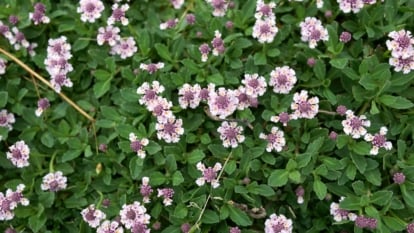

|
|
|
|
What’s Kurapia?
Kurapia, will also be generally known as frog fruit, noticed tooth fog fruit, or turkey tangle. This flooring cowl plant is a perennial in most locations, though it’s not frost-hardy and should die as soon as extra in zones the place the temperatures drop beneath 38°F (20°C) all through the winter. If kurapia is efficiently established then it might presumably recuperate all through the spring after dying as soon as extra all through the winter. It’s an evergreen in zones with no laborious frost.
Native Home
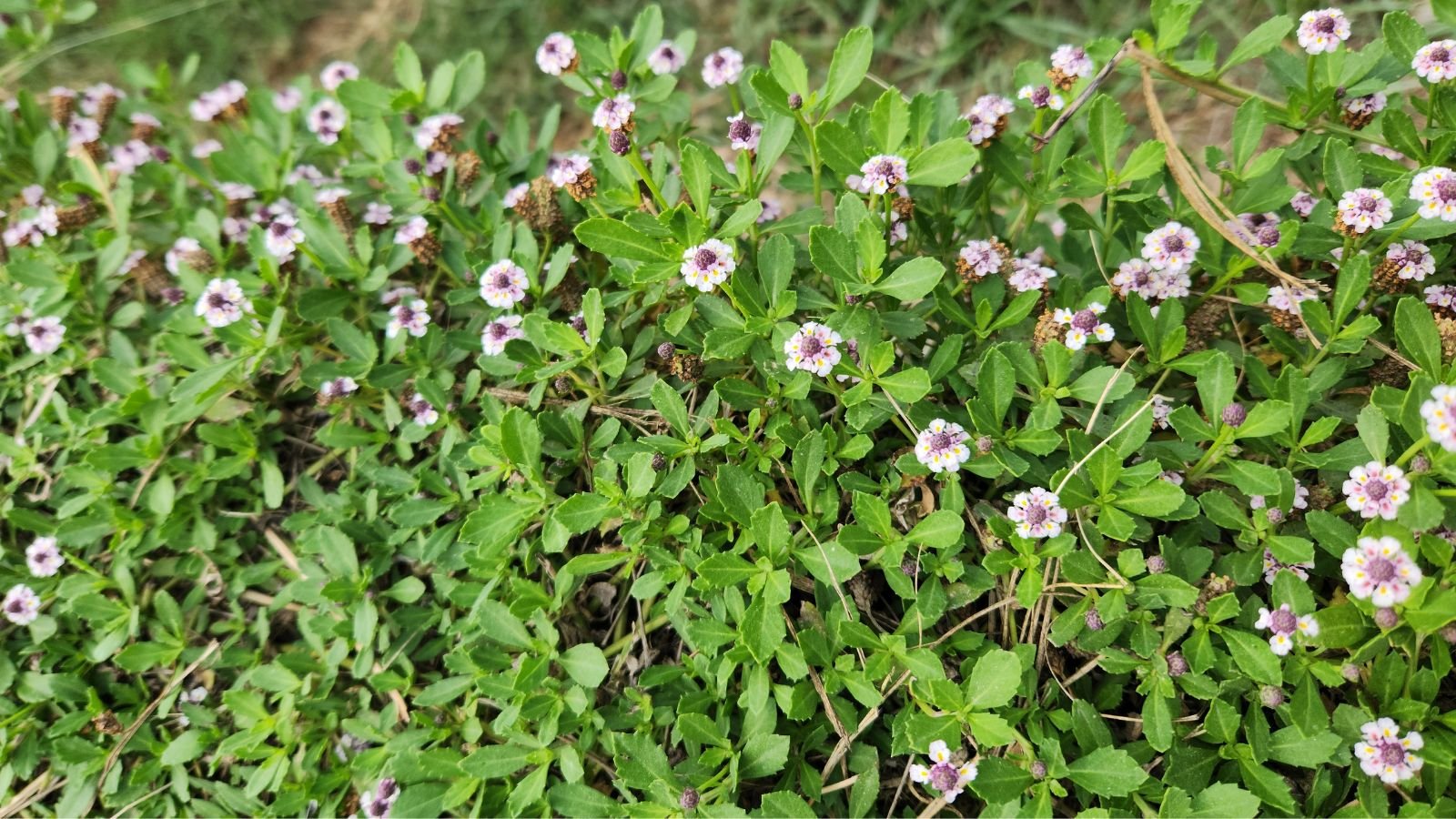

Phyla nodiflora is native to most areas of the world and has furthermore been launched into many others. The widespread areas cowl most of South America, southern United States, most of Africa, most of Australia, some areas all through the Center East, southern Europe, and the southern elements of Asia.
Traits
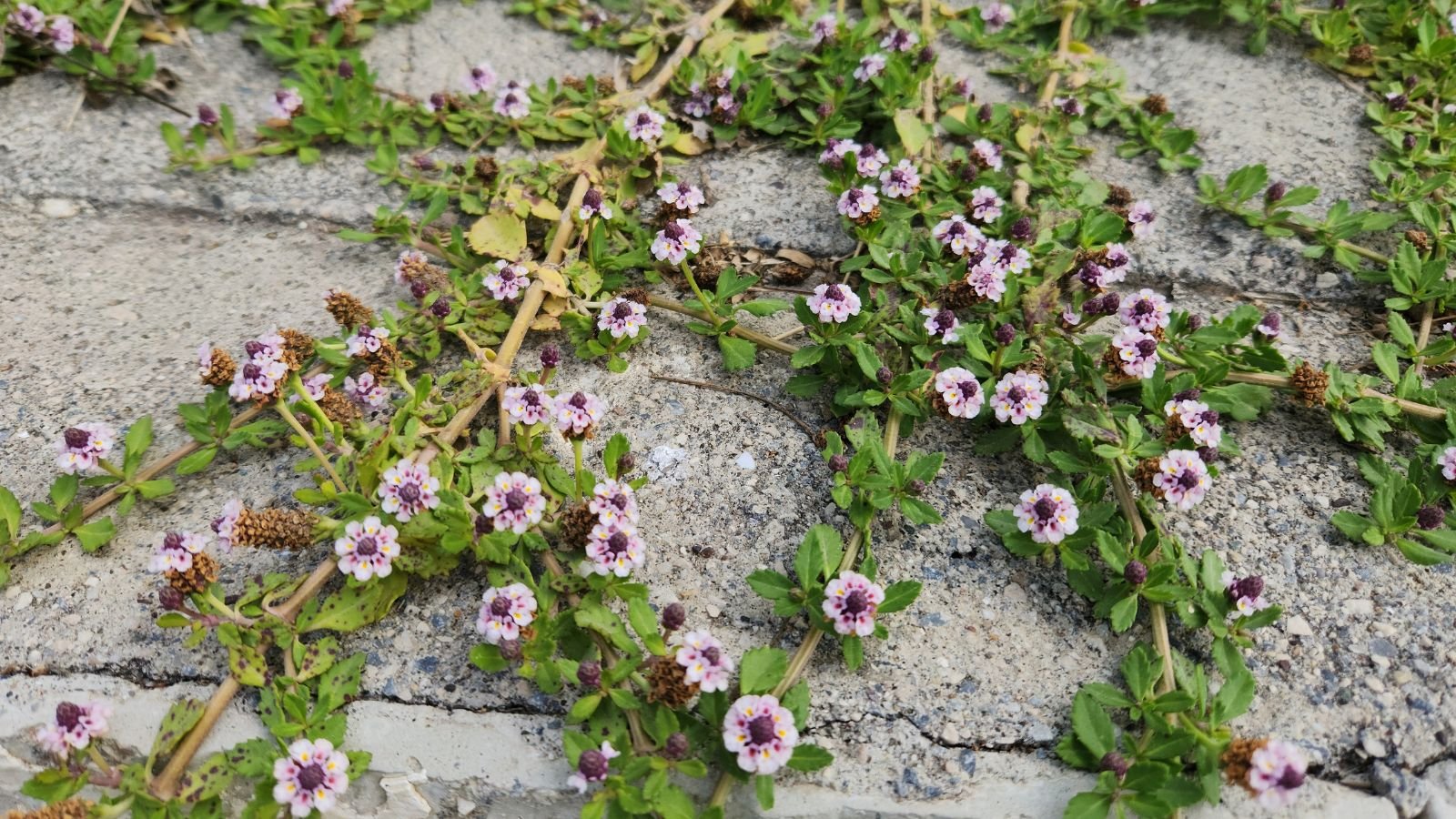

Kurapia resembles clover and has an analogous enchancment conduct together with small white flowers. It has a really deep root system which can attain down 5 to 10 ft beneath the soil flooring. The sturdy improvement of the concept system is what makes it significantly adept at offering soil erosion administration. It might actually furthermore merely be grown on slopes and it tolerates windy circumstances.
Used as a yard substitute, it might be mown to 1 inch tall which furthermore makes it develop horizontally. If left for over 50 days, it’ll flower all through the heat season with small white to pink flowers with purple facilities relying on the variability.
Learn to Develop Kurapia
This turf quite a few and flooring cowl requires minimal upkeep. Nonetheless, research on to overview its wishes to incorporate it in future duties for flooring cowl and weed administration.
Mild
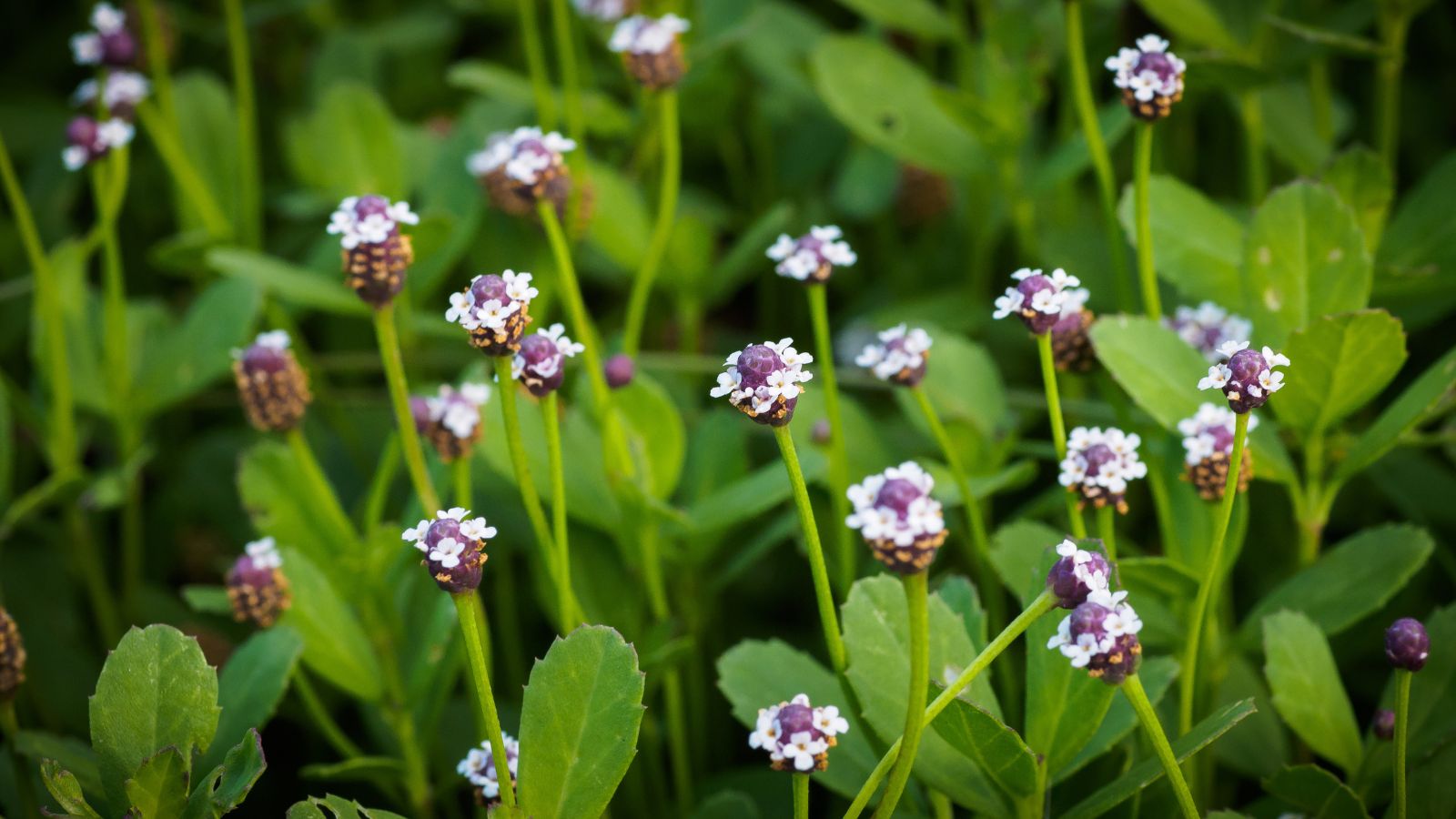

What makes this flooring cowl very setting pleasant is that’s that though it prefers full picture voltaic, it might presumably furthermore tolerate partial shade. Partly shade, it could not develop as densely and mustn’t produce flowers. Six to eight hours of direct daylight per day is required for optimum enchancment.
Water
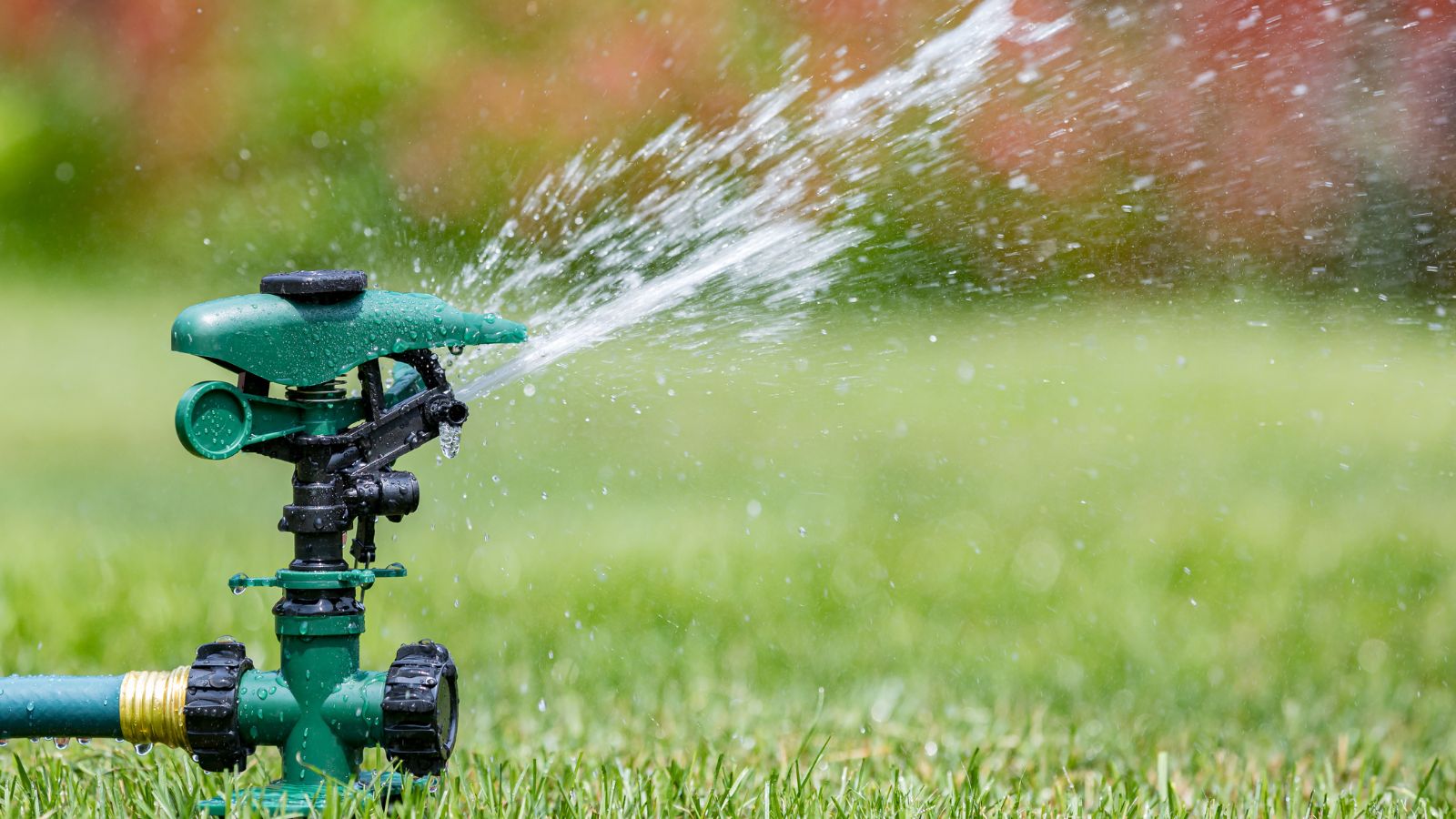

Kurapia is considered drought-tolerant. Nonetheless, it’ll do elevated with widespread water. If there are intervals of drought, trials have confirmed that the underside cowl will die down, nonetheless will spring as soon as extra to life when watered usually.
The leaves retailer water of their vascular tissue which lets them carry onto water reserves longer than one different grasses.
Water this plant as evenly as potential to keep away from uneven enchancment. Irrigation packages or a sprinker are good options. Water kurapia all through the morning twice per week in scorching summers. In the reduction of watering in winter when the crops are dormant. There isn’t any ought to water if rainfall is widespread.
Soil
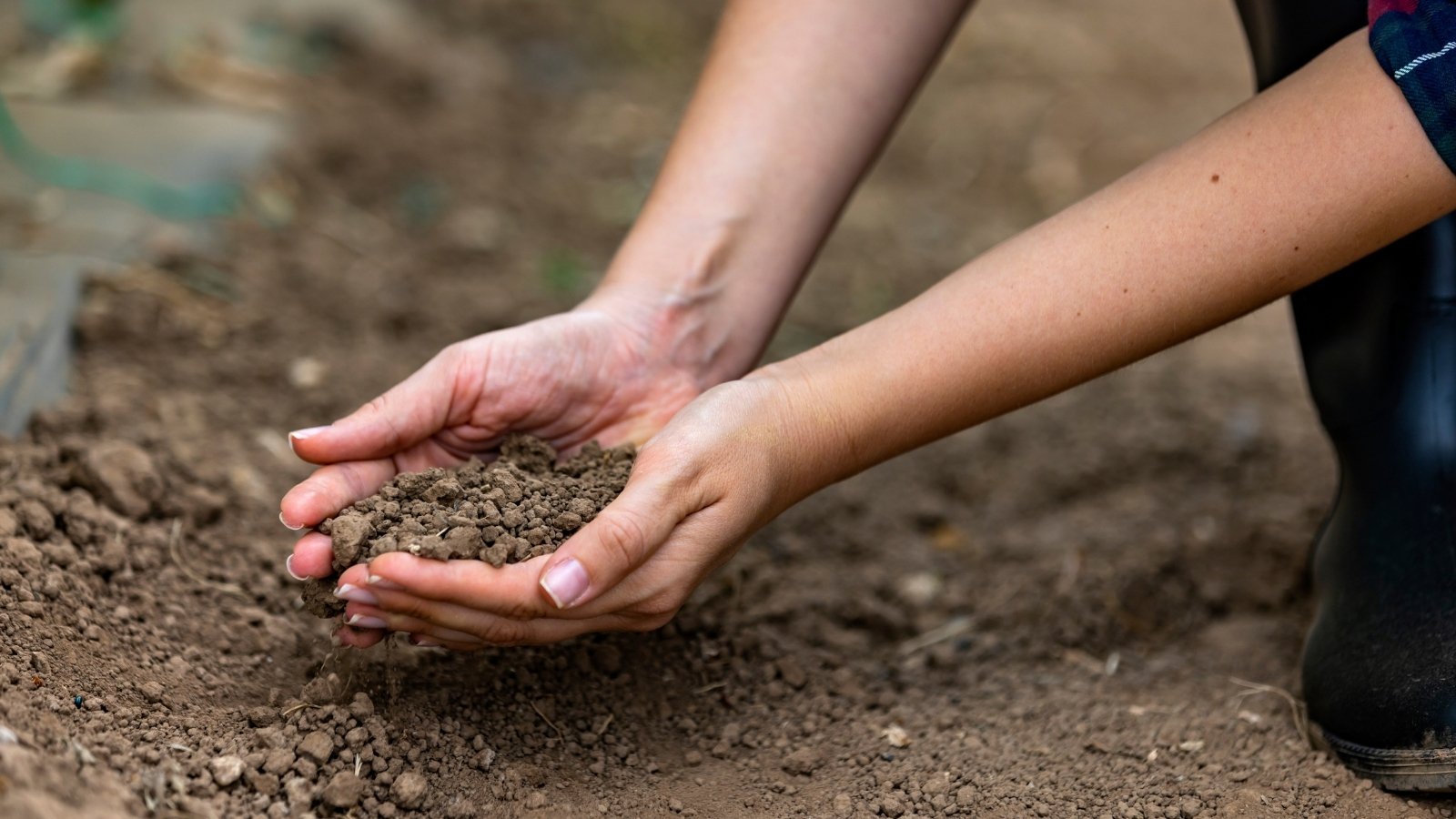

Plant in sandy loam soil enriched with pure matter. It might actually furthermore survive quite a few circumstances together with extreme and low pH soils and even soils containing excessive salt concentrations. With its deep root system, it all kinds for planting on slopes and utterly completely different uneven surfaces.
Along with the soil erosion properties, its thick, dense enchancment aids in weed suppression and as shortly as established prevents weed seeds from germinating by proscribing their entry to the soil flooring.
Temperature
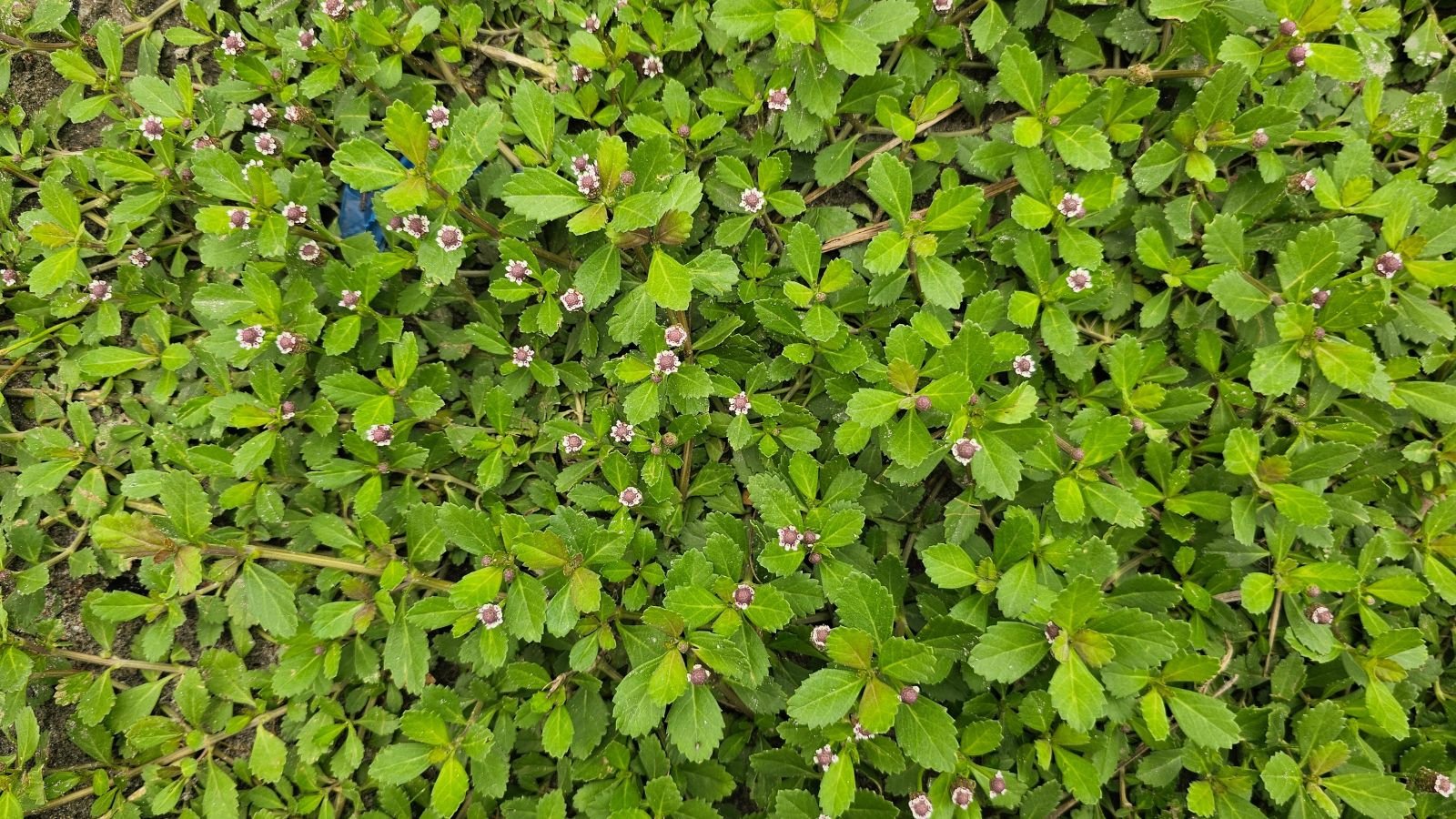

Kurapia is considered one in all many cool-season turf grasses due to it might presumably tolerate temperatures all the way in which by which proper right down to 45°C (7°C). It may maintain evergreen in areas the place temperatures maintain above 38°F (3°C) like in zones 7b and better, nonetheless will die as soon as extra if temperatures drop beneath that stage.
Fertilizing
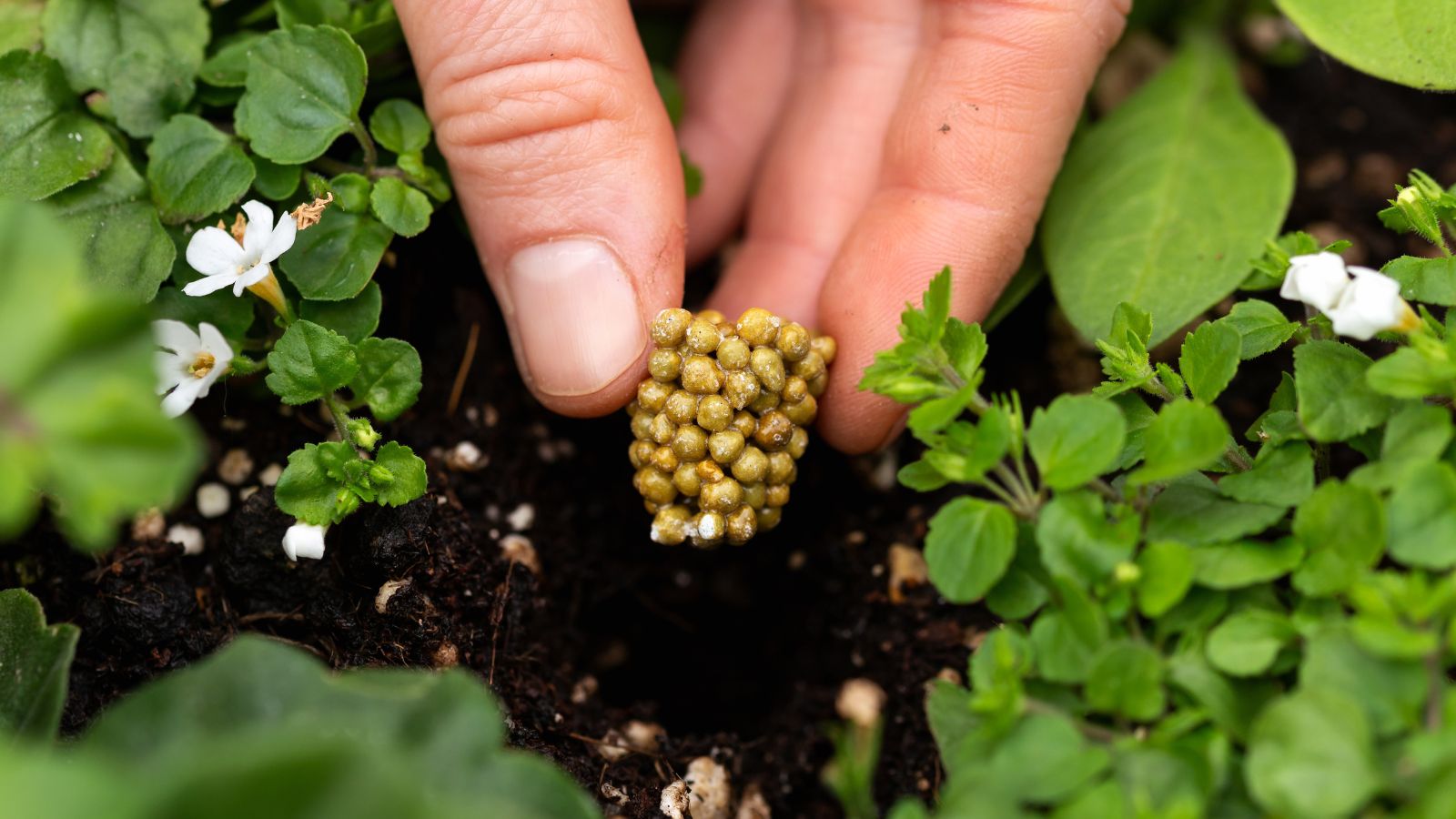

Fertilize kurapia to retain its vibrant inexperienced shade. Apply a slow-release steadiness formulation twice a 12 months – as shortly as in spring and as quickly as further all through the autumn. Fertilizing all through the spring will encourage flowers if offering meals for pollinators is part of your aim with this flooring cowl.
Repairs
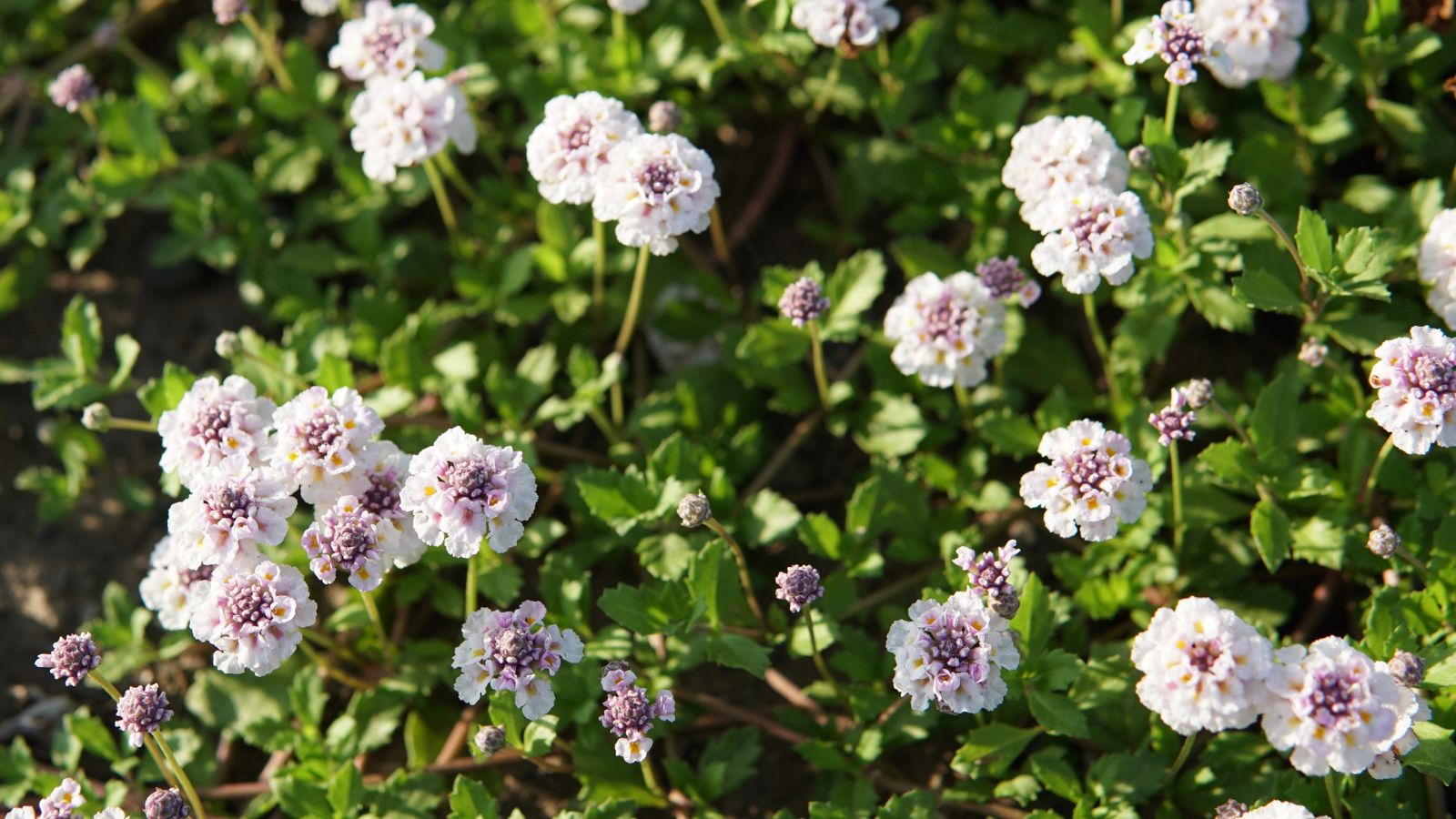

Just like with a yard, kurapia does require mowing. A a major rule, mow in any case as shortly as a month to care for it at a manageable lawn-like excessive all through the rising season. Allow them to develop just a few inches taller throughout the event you’d like them to flower and produce forage for pollinators. By way of the winter months, the enlargement will decelerate significantly as will your ought to mow it.
Propagation
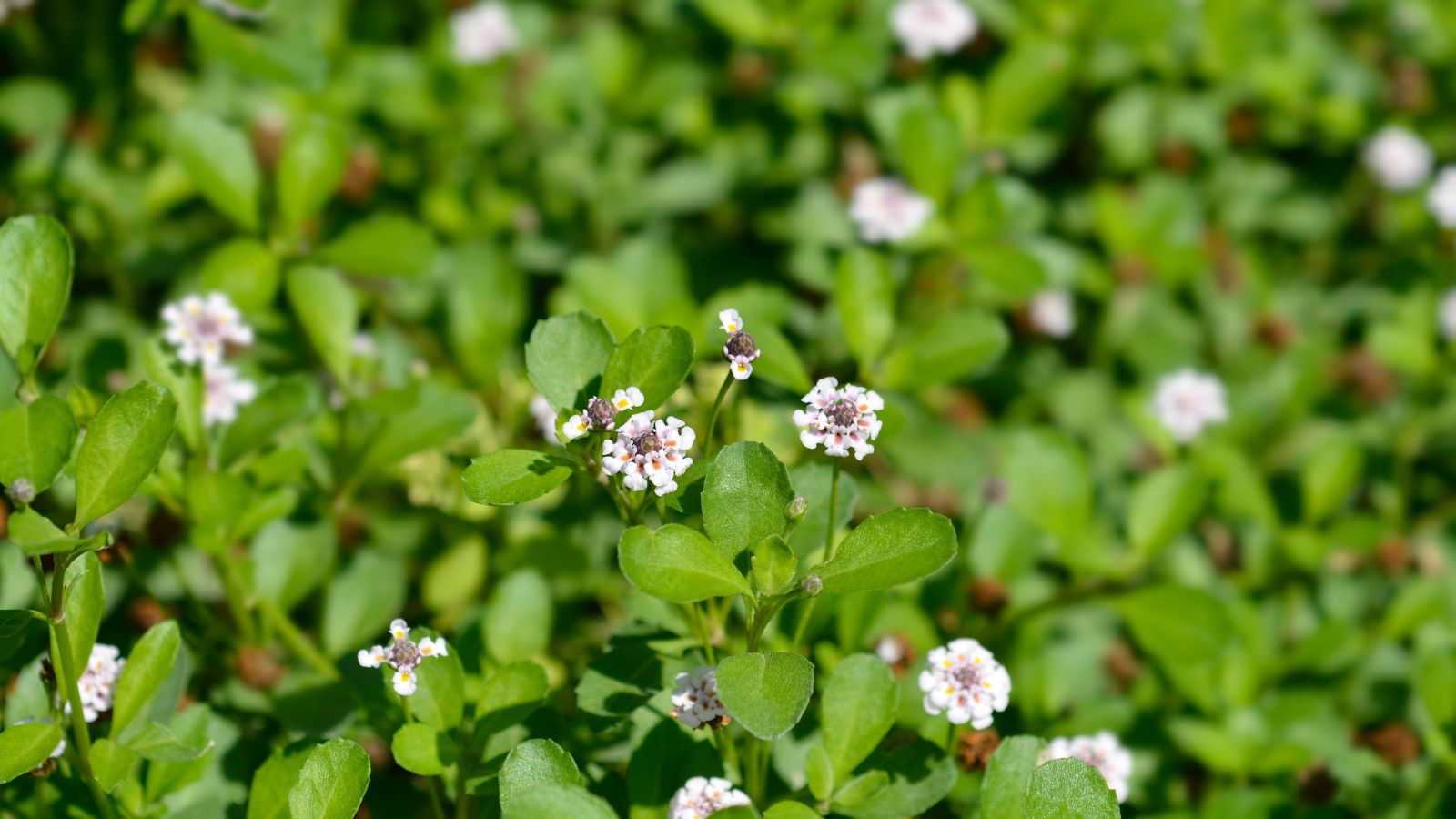

The commercially-available kurapia is sterile and attributable to this actuality doesn’t produce viable seed, nonetheless it does unfold steadily over time with out seed viability. There’s little data obtainable as as as as to whether or not kurapia could also be propagated via cuttings. Nonetheless, it might be dug up and divided as shortly as established and replanted elsewhere. Consider to clear the world of weeds every with a tarp or tiller earlier than planting kurapia.
Widespread Factors
Kurapia flooring cowl is a low upkeep plant which makes it good for an home that you simply simply must cowl shortly and completely – notably referring to weed suppression. This flooring cowl sod has minimal rising factors, pests, and diseases.
Rising Factors
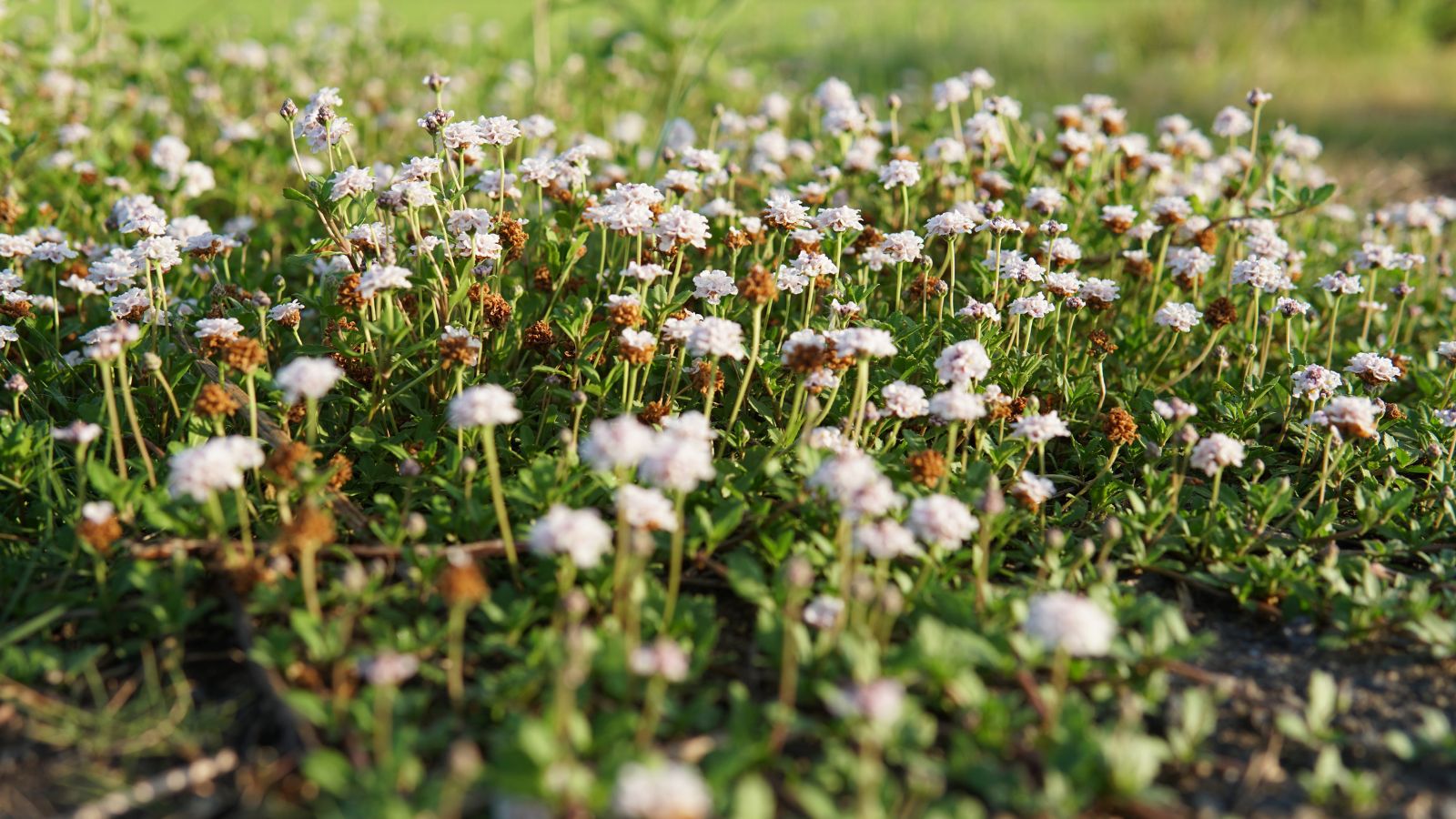

Most incessantly rising factors with kurapia come up from dry areas attributable to poor sprinkler distribution, clogged nozzles, or leaks all through the irrigation packages. Check out your sprinkler distribution to ensure your crops are being watered evenly. If optimistic areas are rising sooner, thicker, or seem lusher than others with further runners, then this can be an indicator of irrigation elements.
Pests
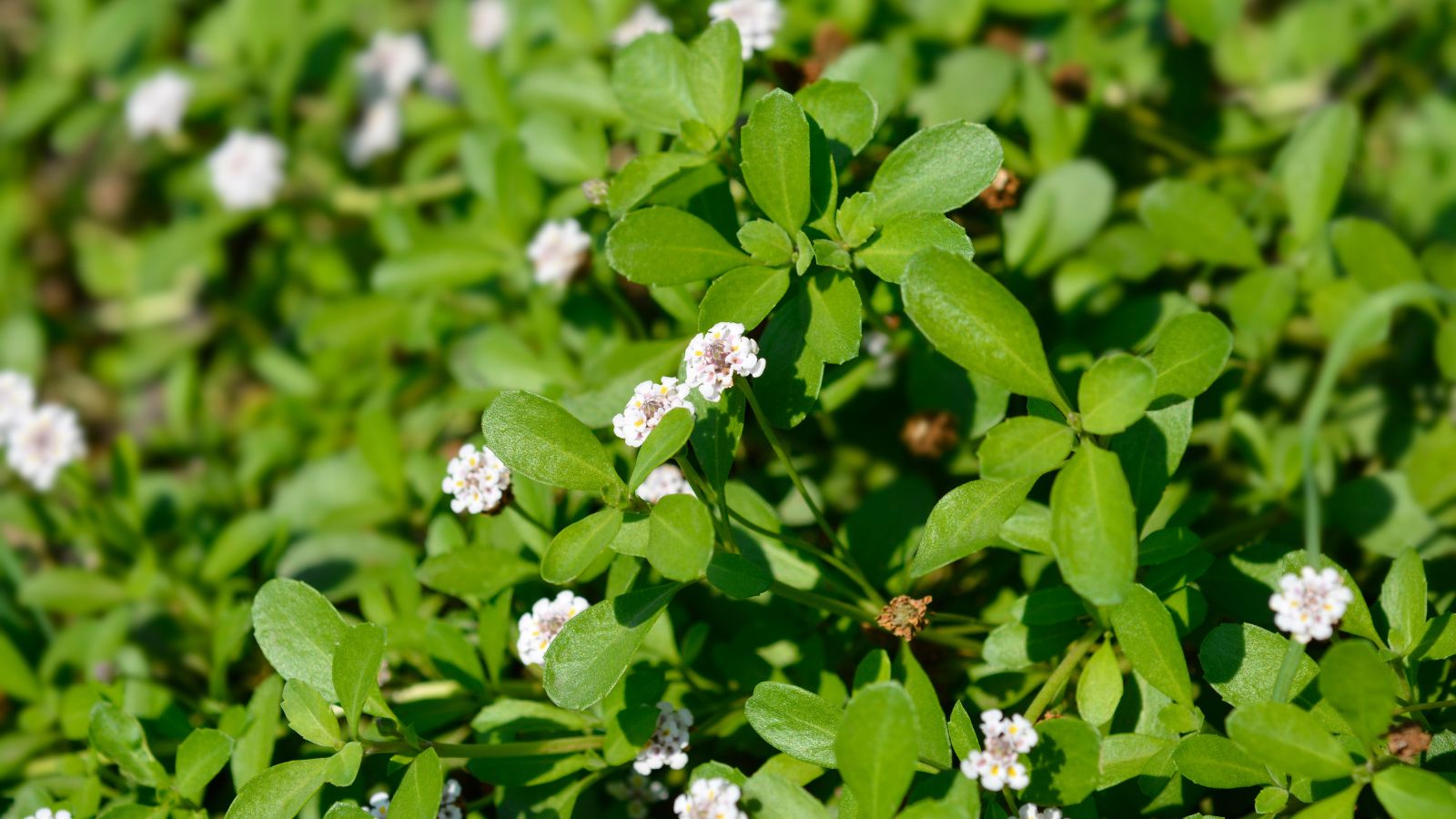

In most areas kurapia has no acknowledged pests! There have been evaluations of damage attributable to leaf chewing bugs, nonetheless this damage has been minor and doesn’t set off any long-term elements.
Sicknesses
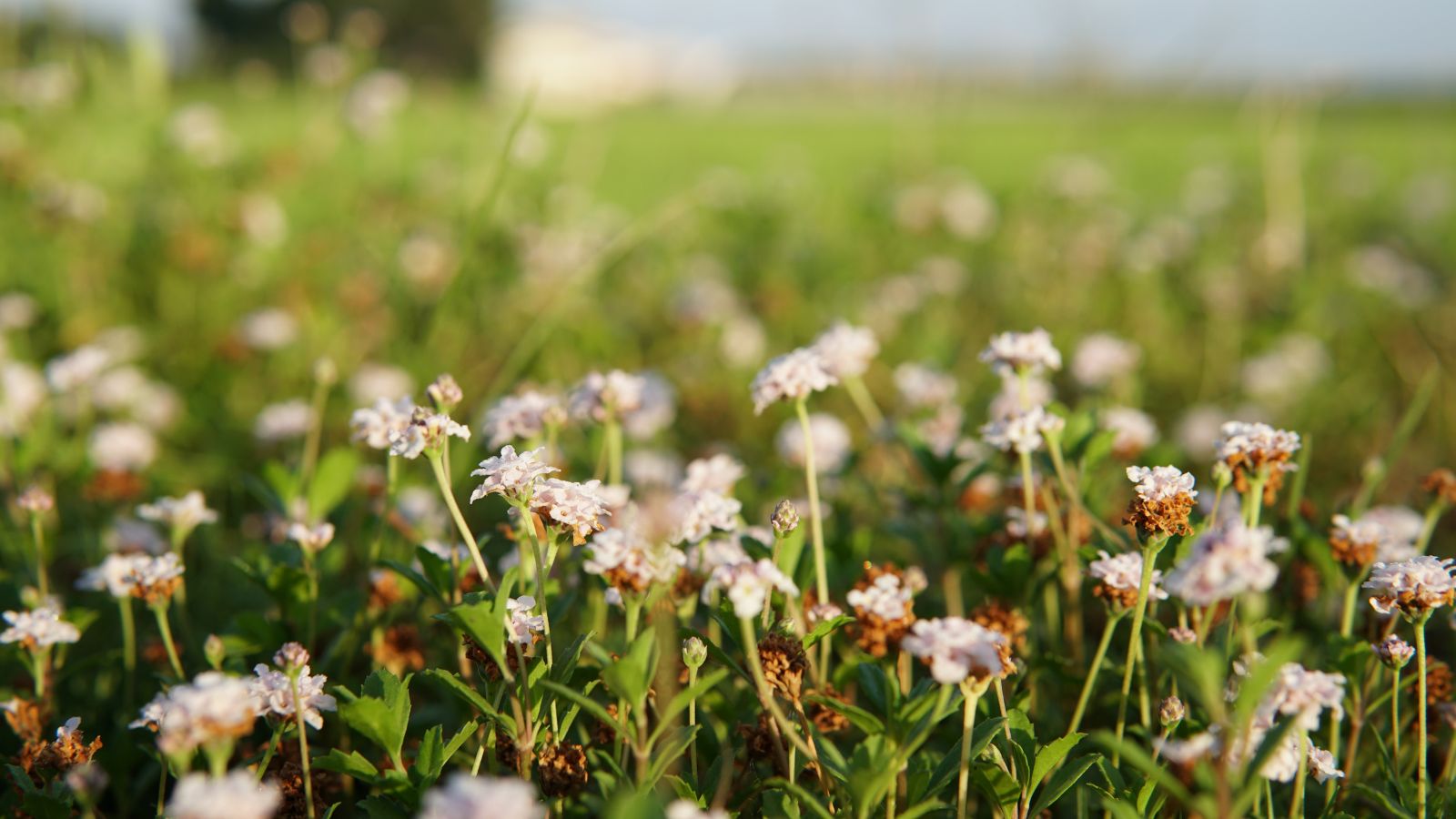

Just like a scarcity of pests, kurapia furthermore has few illness factors. It might be weak to illness in further humid environments. Keep away from over-irrigation in humid climates as it will doubtless typically finish in fungal diseases. Since kurapia is low-growing, densely packed, and has little airflow between runners, it makes the right setting for fungal elements in excessive humidity. It might also have a difficult time recovering from fungal infections, so preventative measures are greatest.
You have to to water all through the morning to keep away from moist foliage when humidity tends to be at its highest. If a fungal an an an infection is already current, then apply an pure fungicide per the directions on the bottle.
Repeatedly Requested Questions
Kurapia makes an beautiful flooring cowl! It grows horizontally by rooting alongside the stem, Defending the stems low to the underside via mowing will encourage this horizontal enchancment.
No, it’s a sterile/non-invasive and cold-hardy cultivar. There are, nonetheless, Phyla nodiflora varieties which have been naturalized and develop like weeds in California and are thought of invasive.
Kurapia can and should choke out weeds and grass as shortly as it’s extremely established.
Kurapia can protect gentle foot friends, nonetheless it ought to be utterly established first.
Constructive, it’s deer resistant.
